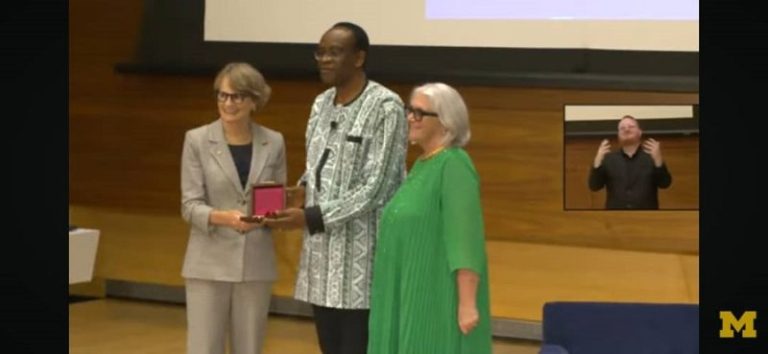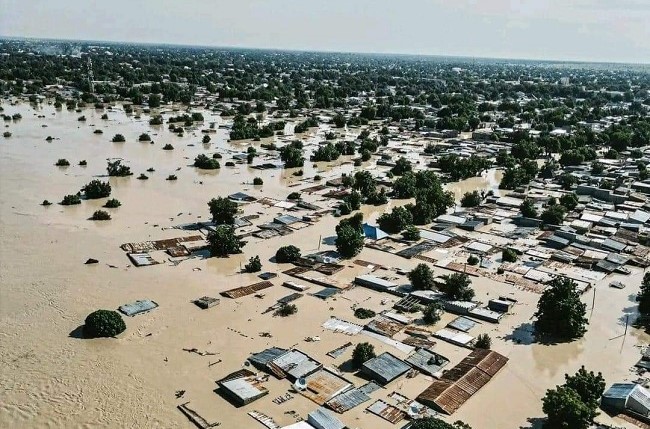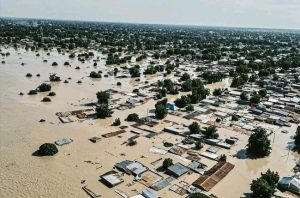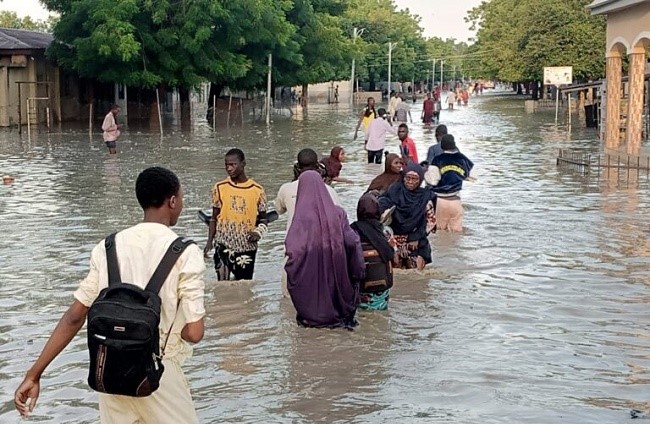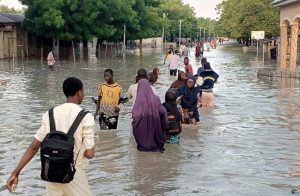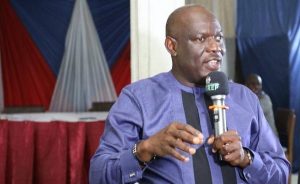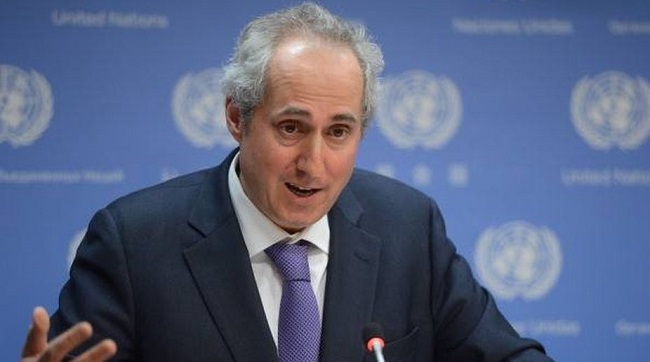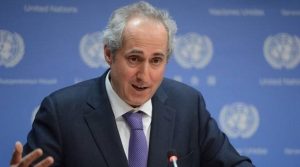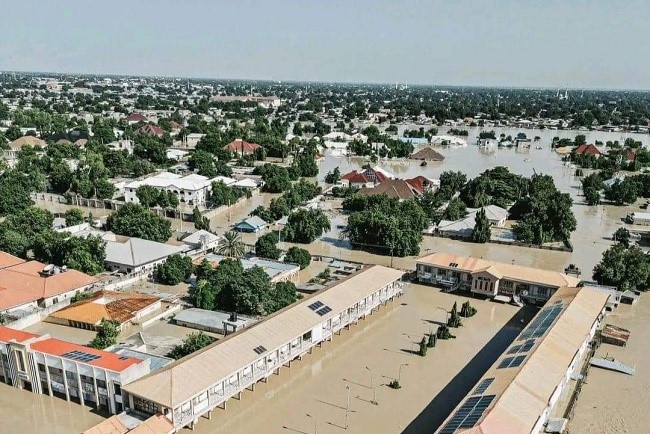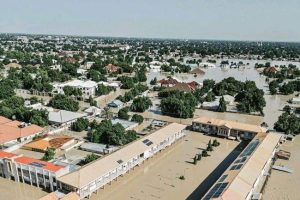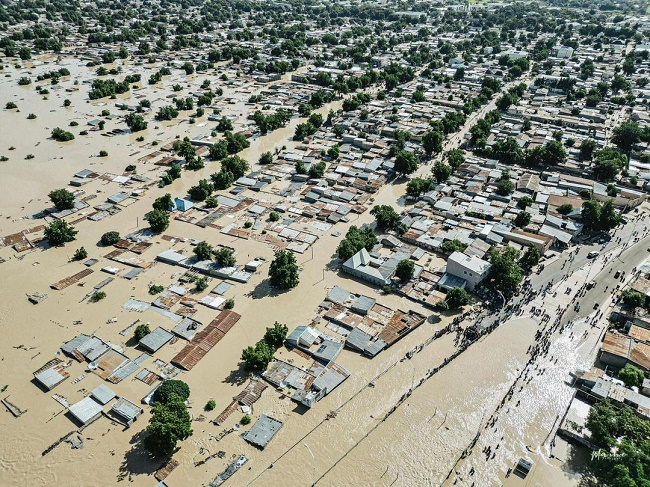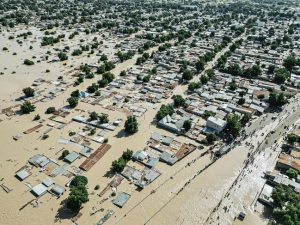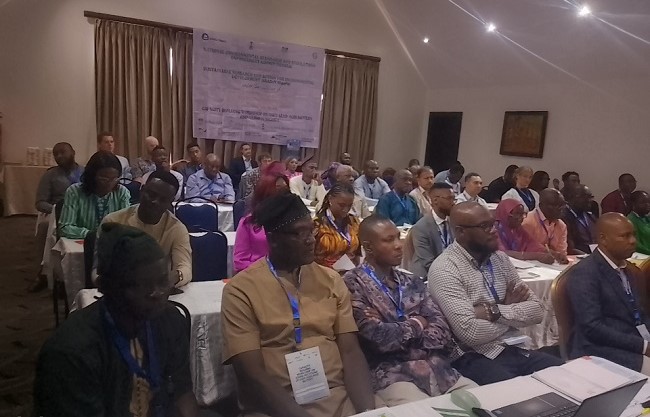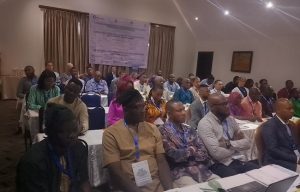Health of Mother Earth Foundation (HOMEF) celebrates with its Executive Director, Dr Nnimmo Bassey, on the prestigious honour of the 2024 Wallenberg Medal. Bassey is the first Nigerian and the fifth African to have received the award.
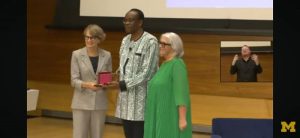
He joins the ranks of other giants like South Africa’s Helen Suzman (1992), Archbishop Desmond Tutu (2008), Rwanda’s Paul Rusesabagina (2005), and Congo’s Denis Mukwege (2010). Bassey’s long list of accomplishments is celebrated as he accepts this prestigious recognition.
The award took place on Tuesday, September 10, 2024, at the Ross School of Business Robertson Auditorium, at the University of Michigan.
The Wallenberg Medal is a tribute to outstanding humanitarians who have gone above and beyond to protect the vulnerable and oppressed, much like Raoul Wallenberg, the Swedish diplomat who saved thousands of Jews during World War II, whom the award was named after.
At the occasion, the Swedish Ambassador to the United States, Ambassador Urban Ahlin, extolled the virtues of Raoul Wallenberg and enjoined the audience to dedicate their lives to the cause of humanity so that they may be remembered just as Wallenberg was being recognised. Other speakers included the Chair of the awards committee, Professor Sioban Harlow, and the provost of the university, Professor Laurie McCauley.
In his acceptance speech and lecture titled: “We Are Relatives”, Dr Nnimmo Bassey stressed “love, humility, dignity, and respect” as core to his vision of a livable future for all beings.”
He stated that, as an environmental justice advocate whose work has been based on the understanding the polycrisis confronting us, we have a duty to always seek to uncover the roots of the crises rather than treating the symptoms.
He said: “Seeking out those roots helps us avoid superficial responses and pursue real solutions, some of which may be unattainable in our lifetimes. One of our key struggles has been understanding the mindset that permits inequalities in our societies. The mindset that elevates might over care and love. The mindset that promotes the individual rather than the community. The mindset that refuses to understand that we are relatives. The mindset that grabs, trashes, and feeds on the misery of others. The mindset that permits environmental racism.
“Understanding the roots of polycrisis helps us to see the phenomenon of expanding sacrifice zones in our world today. It also placed on us the duty of standing with the oppressed to halt the expansion of sacrifice zones in Nigeria, in Africa, and elsewhere by seeking to overcome the energy and other hegemonic transitions that sacrifice nature and are driven by colonial extractivism built on embedded geopolitical power imbalances.”
Bassey further stated: “Climate action and inaction provide pictures that help us see the difficulties we face in trying to build a consensus that the climate crisis is a global crisis and not a national crisis. It also shows that the world is not yet ready to make the hard decisions by accepting that the pursuit of infinite growth on a finite planet is a false dream.”
Director of Programmes at HOMEF, Joyce Brown, on behalf of the organisation, applauds the executive director for his outstanding performance, stating that Dr. Bassey’s exceptional work and contributions have led to undeniable global recognition. It was also a veritable opportunity to showcase the work that HOMEF does and show the key place that cultural tools like poetry play in healing a hurting world, she adds.
Similarly, the Corporate Accountability and Public Participation Africa (CAPPA) has described the 2024 Wallenberg Medal bestowed on Dr Nnimmo Bassey as well-deserved.
Robert Egbe, CAPPA’s Media and Communication Officer, made the expression in a statement on Wednesday.
Egbe commended the environmentalist for his eloquence and deep expression of ideas while delivering the 29th Wallenberg Lecture.
He said that Bassey effectively used the lecture titled: “We Are Relatives” to discuss the power of love, humility, dignity and respect in his vision for a liveable future for all beings.
Egbe described Bassey as a world class environmental activist.
“Bassey is synonymous with pristine work and relentless pursuit of environmental justice and accountability.
“We salute you on this well-deserved recognition as the recipient of the 2024 Wallenberg Medal. We are excited to celebrate this recognition,” he said.
The CAPPA spokesman said that Bassey had remained committed to addressing climate migration, environmental and social impacts of extractive production, and hunger.
“He is known to be resolute irrespective of obvious challenges, this award affirms the global recognition of his exceptional impact,’’ he said.
Besides being an environmental activist, Bassey’s work includes significant environmental books like To Cook a Continent: Destructive Extraction and The Climate Crisis in Africa (2012), and Oil Politics: Echoes of Ecological War. His poetry, including We Thought It Was Oil But It Was Blood (1998), I Will Not Dance to Your Beat (2010), and the latest I See the Invisible (2024), continue to inspire the spirit of resistance and hope in all who read or listen to him.

